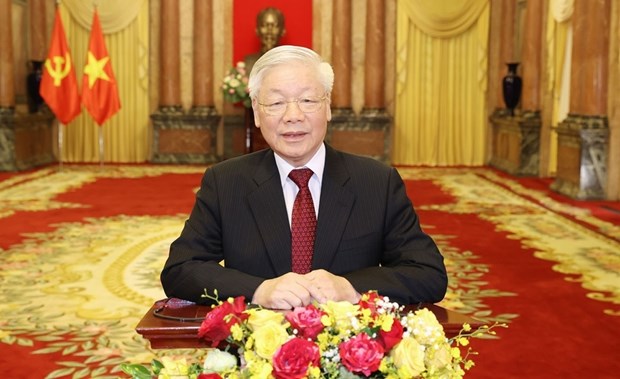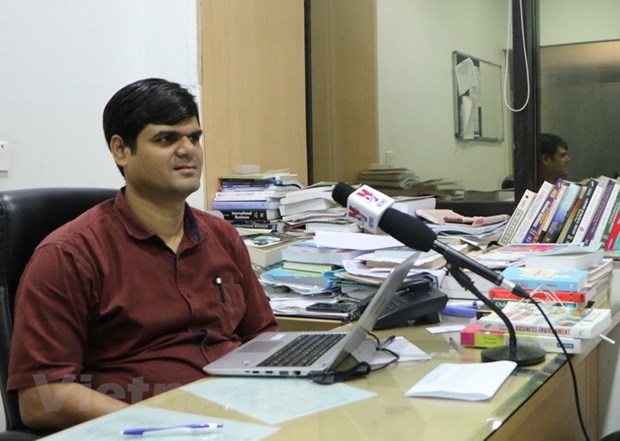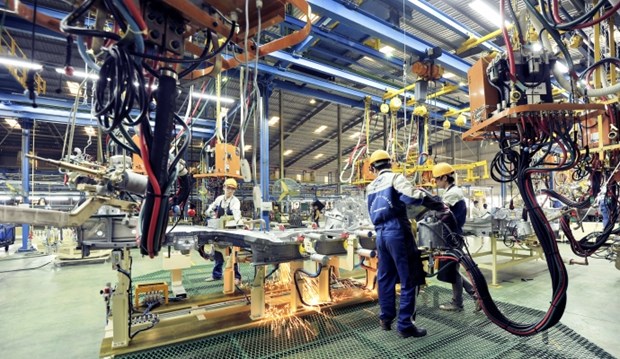Vietnamese Party leader’s article upholds State role in ensuring social equity: Indian scholar
 Party General Secretary Nguyen Phu Trong (Photo: VNA)
Party General Secretary Nguyen Phu Trong (Photo: VNA)
According to the professor, in the pandemic-hit world, the countries which have embraced a socialistic structure have responded well to the emergent social needs.
“Today, we need a people-centric policy, which is characterised by social equality, rule of law, strong institutions, and a cohesive social ecosystem. A growing GDP or FDI must translate into improved social well-being and better living standards”.
 Faisal Ahmed, Associate Professor of International Business at FORE School of Management in New Delhi (Photo: VNA)
Faisal Ahmed, Associate Professor of International Business at FORE School of Management in New Delhi (Photo: VNA) He said that Party General Secretary Trong’s article outlines a people-centric future roadmap for Vietnam, which is worth replicating for the international community, especially the developing countries.
The Indian expert focused attention on the part of the article on the basic premise of a socialist-oriented market economy. According to him, it is rightly pointed out that it encompasses multiple forms of ownership and multiple economic sectors.
“I think this is a very pertinent economic roadmap that is going to establish Vietnam’s global competitiveness in trade and investments,” said Faisal Ahmed.
Assessing Vietnam’ achievements during the development process of a socialist-oriented market economy, he stated that Vietnam has made sound progress after the implementation of the Doi Moi (Renewal) process.
 Vietnam speeds up industrialisation (Photo: VNA)
Vietnam speeds up industrialisation (Photo: VNA)
“Doi Moi enhanced Vietnam’s international trading position, and helped it improve its role in global economic governance. The domestic productive capacity has enhanced over the years, and it has helped Vietnam gain from exports too,” he said. “The FDI inflows have happened and contributed to improving the living standard of the people. Today, it is only because of its socialist-oriented market economy that Vietnam is a fast developing country in Southeast Asia and has an increasing participation in the Global Value Chains”.
To achieve a socialist society, the Indian professor suggested Vietnam step up economic diversification and industrialisation, boost its competitive collaboration with larger economies in Asia, focus on convergences on the global and regional strategic front, and enhance impetus on science and technology studies.

